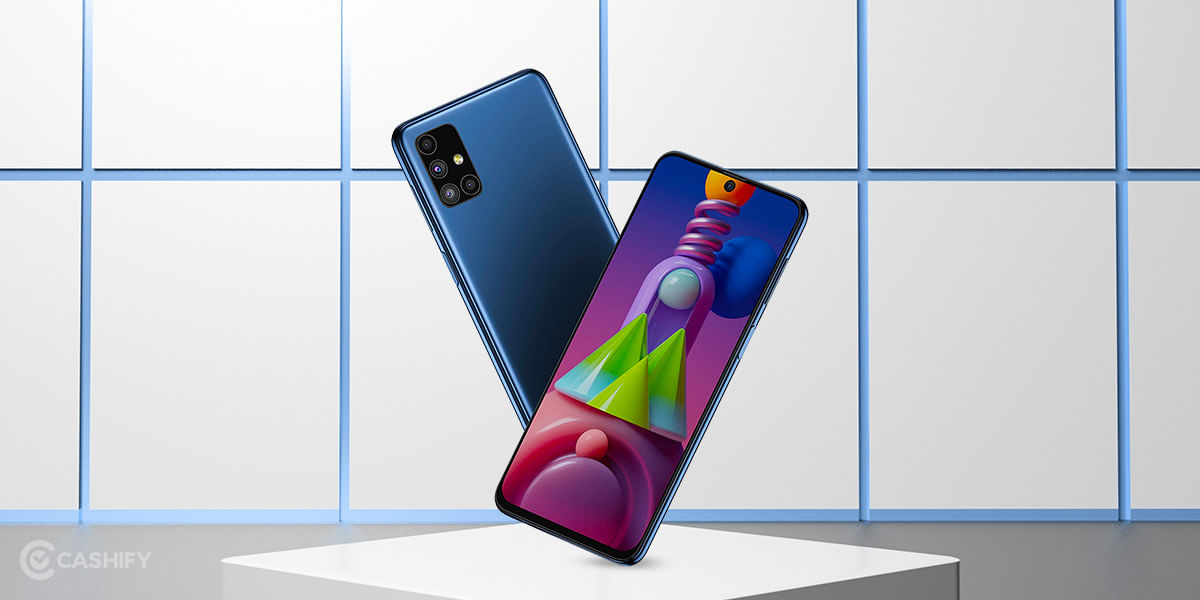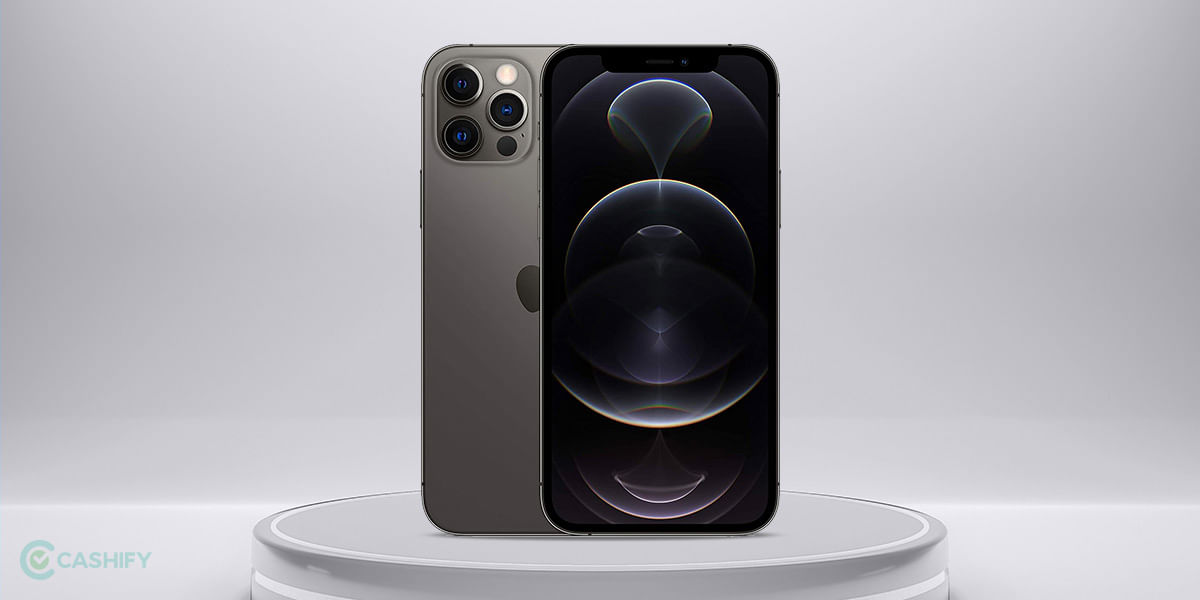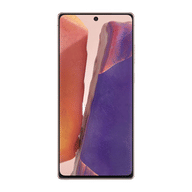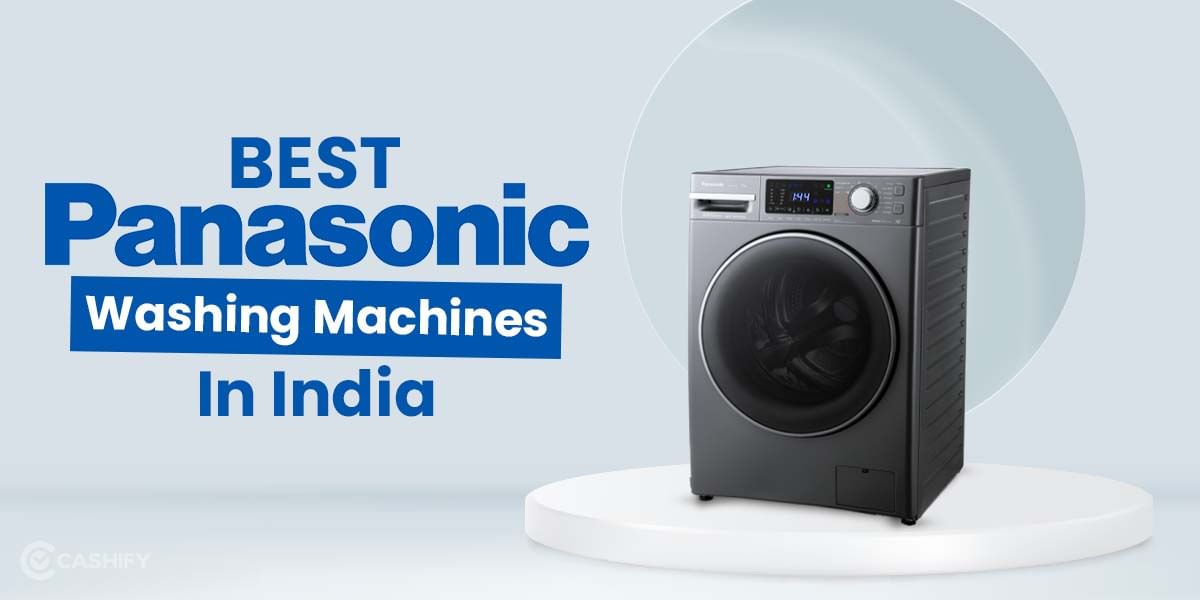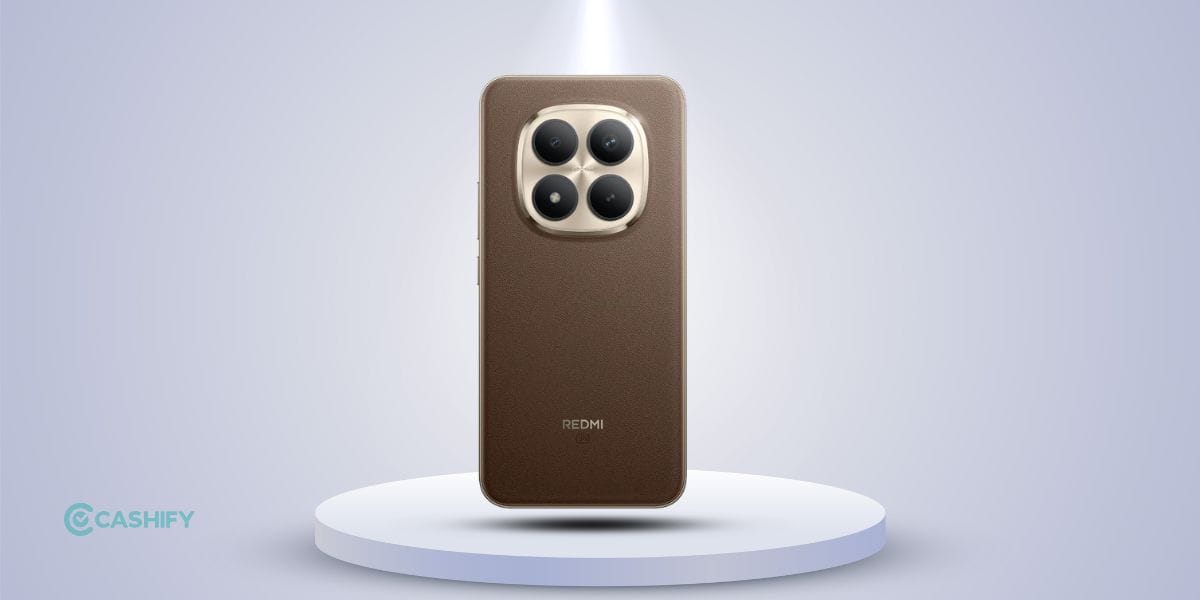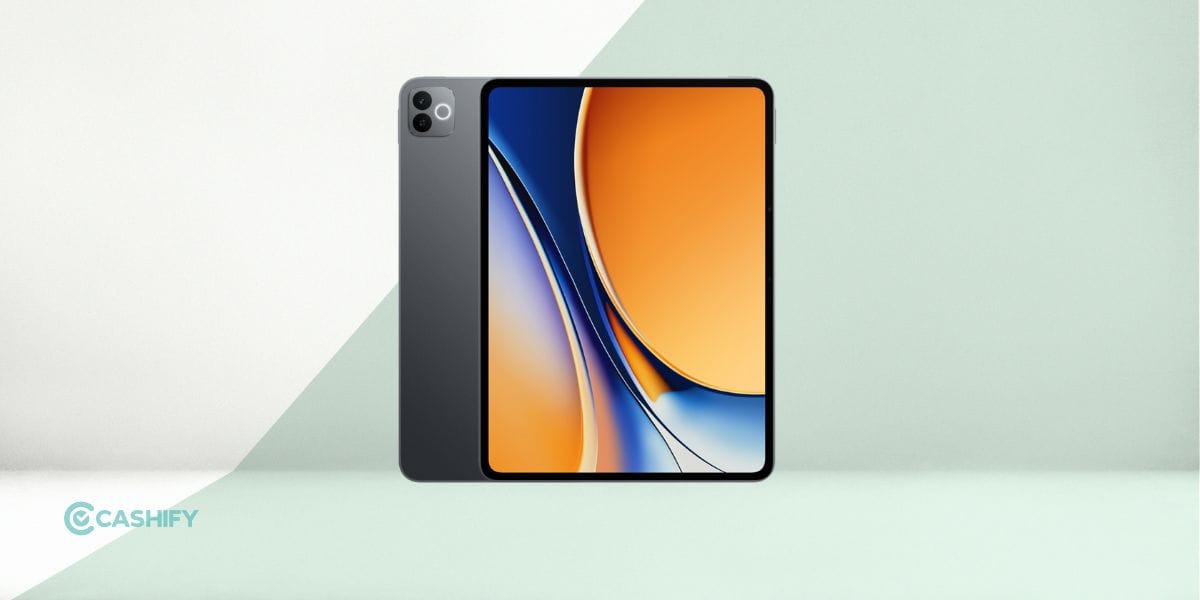Introduction
Every year Samsung continues with the legacy to bring a new Note series offered as their prime flagship. The year 2020 saw the Galaxy Note 20 and the Note 20 Ultra. Samsung launched the Galaxy Note 20 in August 2020 as a more affordable option to the Ultra version. It is powered by the same Exynos 990 chipset as the Note 20 Ultra but has a 6.7-inch OLED display with a 60Hz refresh rate and a smaller 4300mAh battery. The triple camera setup at the back houses a 12MP primary sensor, a 12MP ultrawide and a 64 MP Telephoto lens.
Also Read: Top 5 Flagship Smartphones of 2020
The Galaxy Note 20 is a pretty powerful and a good looking smartphone but do you still really want to go for a plastic back smartphone even after spending Rs.79,999. Let us see in our detailed review where does the Galaxy Note 20 stand when compared to other flagship devices in its price segment?
Prices in India, Variants, Availability
The Galaxy Note 20 is available only in a single variant of 8GB RAM and 256GB internal storage at a price tag of ₹77,999. As for the colour options, you can choose from Mystic Bronze, Mystic Green, Mystic White and Mystic Blue shades.
You can buy it from Amazon India, Flipkart or from Samsung.com. Flipkart is offering a buy with an exchange offer with exchange value up to ₹22,900 for your old device, along with a tonne of other deals with HDFC credit or debit cards.
Box Contents
Your Samsung Galaxy Note 20 comes with several accessories in the box, unlike the new Apple iPhones.
- Galaxy Note 20 device.
- USB-C to USB-C cable.
- Powerful 25W fast charger.
- AKG-powered wired earphones
- SIM ejector tool.
- S-Pen
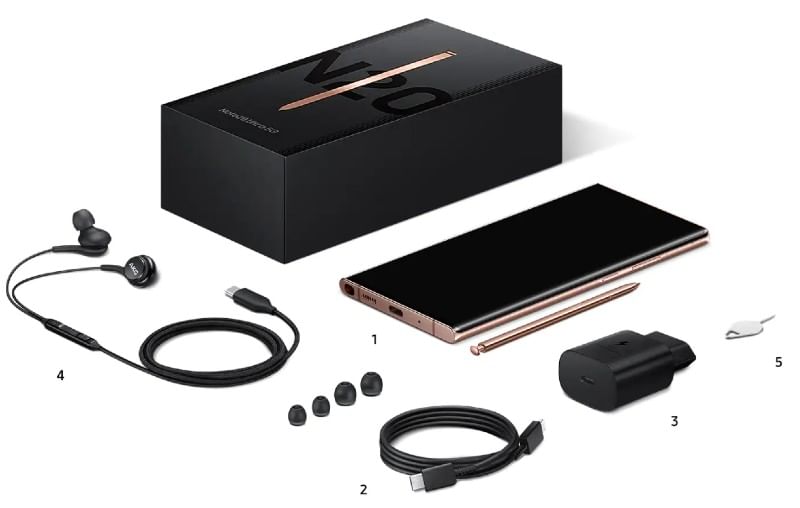
Specs at a glance
Before we talk in detail about the Galaxy Note 20, let’s have a quick look at the key specifications.
- Display: 6.7-inch FHD+ sAMOLED, 60Hz refresh rate
- Chipset: Exynos 990 octa core processor
- RAM & ROM: 8GB/256GB
- Software: OneUI 2.1 based on Android 10
- Rear camera: 64MP + 12MP+ 12MP
- Selfie camera: 10MP
- Battery: 4300 mAh, 25W fast charging
- Weight: 192g
- Dimensions: 161.60 x 75.20 x 8.30mm
With key specs discussed, let’s talk more about the Galaxy Note 20 and see why we called it a failed flagship attempt by Samsung.
Design and Build
If I talk about the design aesthetics, the Note 20 looks unmistakably like a Galaxy Note phone. Samsung has gone with a bigger size Note this time rather than continuing with the Note 10’s shrunken take on Samsung’s phablet formula.
The Galaxy Note 20 has the Note series’ rectangular-style design but without any curved edge shenanigans on display. As usual, we do have a pop-out S Pen stylus, and every time you remove the S Pen, there’s a subtle vibration which shows the perfectly measured haptic response of this device.
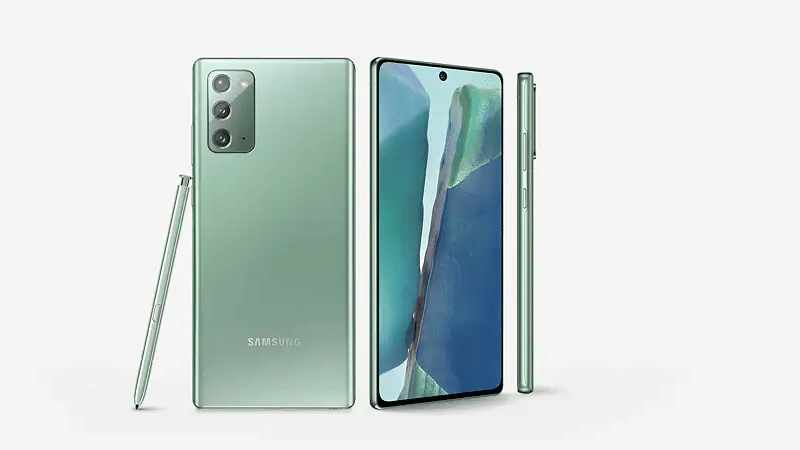
The back panel on the Galaxy Note 20 is plastic which most of the people will complain about looking at its high price, including me. But that’s not to say there aren’t some advantages to plastic over glass. Plastic doesn’t attract as many fingerprints and smudges as glass. Although, plastic is more prone to scratches but nowhere near as problematic as cracked glass, lol. Moreover, the Galaxy Note 20 is relatively light, just 192g compared to the Note 20 Ultra’s 208g. The plastic back on Note 20 has a smooth matte texture, and it feels somewhat lovely to touch, but it doesn’t look as fancy as glass. I am not really a fan of plastic backs ever since I started using an iPhone X which brought the culture of premium glass rear panels.
Read More: Samsung Galaxy Note 20 Ultra – Beauty and the Beast
The Galaxy Note 20 also has a smaller less obnoxious camera module with a 12MP primary sensor coupled with a 12MP Ultra-Wide and a 64MP Telephoto camera. The display at the front is a 6.7-inches Super AMOLED Plus Infinity-O panel which is Samsung’s terminology for a punch-hole display. It is flat with very thin bezels on the sides and bottom.
On the right, we have the power button and the volume rockers. The speaker grill, Type-C Port, and the S-pen are present at the bottom. The top houses the SIM tray and the secondary noise-cancellation microphone.
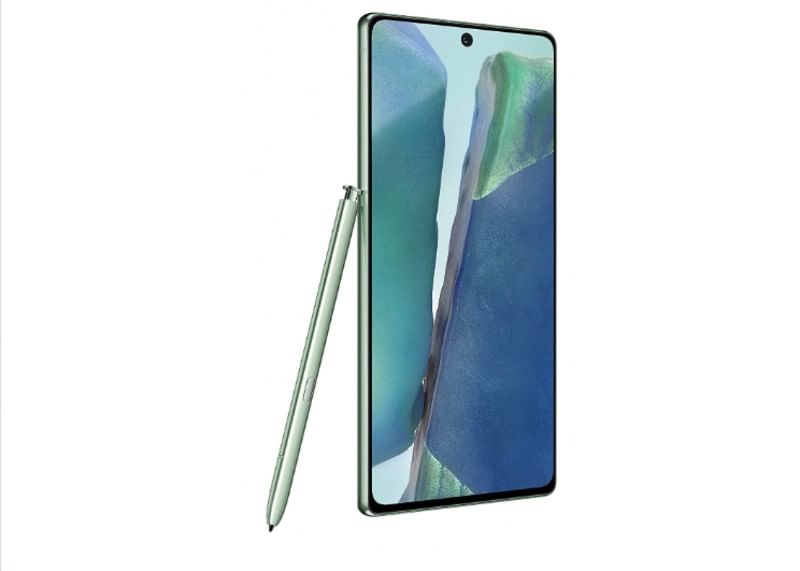
Overall the design looks decent to me and is in some sense better than the Note 20 Ultra, maybe just because the camera bump isn’t as big as the latter. It is comparatively light owing to its plastic back, but that also makes it a little less premium for a premium price.
Display
Samsung is the industry leader and disruptive if I talk about the smartphone displays, that level of quality is maintained for the Galaxy Note 20’s 6.7-inch AMOLED panel. The FHD+ display has a resolution of 1080 x 2400 pixels with a pixel density of 393ppi and an aspect ratio of 20:9. The screen to body ratio is 89.2%. Corning Gorilla Glass 5 protection is a downgrade from the all-new Gorilla Glass Victus found on the Note 20 Ultra, but only if you know the difference because you cannot guess this just by looking.
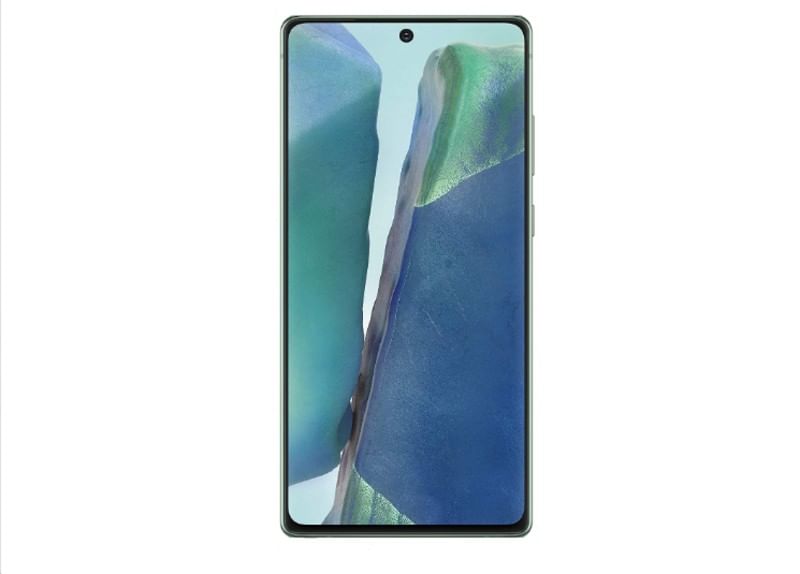
The display on the Galaxy Note 20 is plenty bright with a peak brightness of 640 nits which will ensure good outdoor visibility, even in direct sunlight. The display tends towards warmer temperatures but there is the option to adjust the white balance to your liking. There are blue light filter, adaptive brightness and plenty more toggles and tweaks in the Settings menu.
With its large 6.7 inch display, watching multimedia content will be a joy on the Galaxy Note 20. The only downside is that you can only set it to a maximum of 1080p resolution. It’d be fair to expect Quad HD in this price range, but it is hard to tell the difference unless you deliberately look for one. The phone supports Widevine L1, plus it is HDR10/HDR10+ certified so I was able to enjoy the maximum video quality across all streaming services.
The screen is flat as compared to the curved display on the Galaxy Note 20 Ultra so you won’t be experiencing any accidental touches and the phone retains features like the handy Edge Panel despite the lack of curvature. The bezels are really thin and are hardly noticeable, but the punch-hole for the selfie camera is a bit larger compared to the Note 20 Ultra even though the camera is identical.
Overall I am not really thrilled but Galaxy Note 20 has a bright and beautiful panel which is only undermined by its standard 60Hz refresh rate.
Performance
The Galaxy Note 20 houses the Exynos 990 the in-house Samsung chip. It is a fairly capable chip and on paper, it is almost equivalent to the Snapdragon 865 which comes with Note 20’s American counterpart, but the benchmarks tell a slightly different story. Performance is respectable enough but not that great. The most notable difference comes when you compare the Exynos 990’s Mali GPU with the Qualcomm’s superior Adreno GPUs.
When it comes to real-world use, the Exynos Galaxy Note 20 performs well in day to day usage. You never experience any lags or gets slowed down while zipping around menus or multitasking. Navigating around the phone may feel slow due to 60Hz refresh rate, but the CPU proved to be a perfectly capable performer. You can enjoy almost every popular Android game like Call of Duty, Asphalt 9 and PUBG with the maximum graphic settings although it sometimes struggles to hit consistent frame rates.
One major issue was heat. The Galaxy Note 20 gets heated up very quickly, especially when playing games. Though it doesn’t get that hot that you cannot hold the phone but it sure becomes uncomfortable. Now I wonder if it were not a plastic back, your Note 20 would have surely turned into a portable heater.
The device comes with 8GB of LPDDR5 RAM and 256GB storage with UFS 3.0. Galaxy Note 20 does support expandable storage via microSD card, so you are pretty much covered on the memory part.
Software
Samsung Galaxy Note 20 ships with One UI 2.5 which is based on Android 10, the same software you get with the Galaxy Note 20 Ultra. It feels great how feature-packed Samsung Notes are and how well they support the S Pen. The S Pen does make a lot of tasks easier and nicer like selecting the text, taking a screenshot of a specific section and jotting a quick note on the lock screen. There are some newer Air Actions for taking screenshots, launching the camera and generally navigating around the phone. The S Pen has seen some improvement in latency compared to the Note 10 Series. It is rated at 26ms over the 45ms latency of the Galaxy Note 10, however, it is still behind the Note 20 Ultra’s crazy 9ms of latency.
The App icons are huge by default, while the notification bar and quick settings cover the entire screen. There is a system-wide dark mode which can also be forced on the third-party app. You get the Blue-Light Filter, screen recorder and Focus mode to help you stay focused for Me time or Work time. All these features can be added in the quick toggle from where you can access them instantly.
Cameras
The Galaxy Note 20 features a triple-camera setup at the back. The main camera is a 12MP Sony IMX555 sensor with f/1.8 aperture and 1.8µm pixels. The second is the 12MP wide-angle lens with f/2.2 aperture and 1.40µm pixels and the third is the 64MP telephoto lens with f/2.0 aperture and 0.80µm pixels. The selfie camera is a 10MP snapper with f/2.0 aperture and 1.22µm pixels.
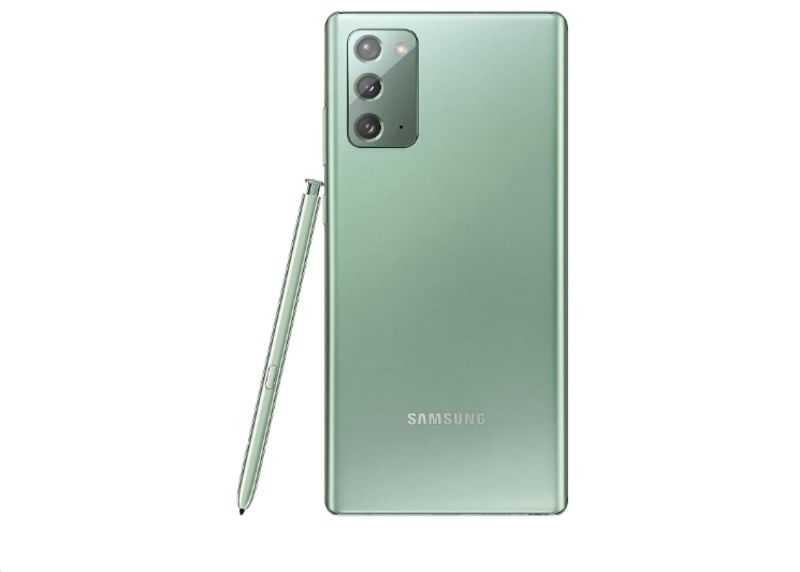
In daylight, the Galaxy Note 20 captures very good images with plenty of details and are quite sharp with excellent contrast. The auto HDR does a lot of heavy lifting in landscape scenes, with fairly consistent white balance and good dynamic range, though details drop off a little if you crop in. You don’t get the laser autofocus as found on the Note 20 Ultra, but the Dual Pixel phase detection does the job perfectly.
The camera performance continues to impress even in low light conditions. The images I captured in low light scenarios were almost as good as daylight photos with the dedicated Night Mode, though it takes a while to process images. You can zoom up to 30x digital zoom with the telephoto lens but image quality reduces beyond 10x zoom. I believe for practical real-life results, the 3x hybrid optical mode is perfectly fine. The ultra-wide sensor captures images which are almost as good as the main camera. While there is a loss in detail, you still get the same overly-saturated, dynamic results with a wide 120-degree field-of-view.
The selfie camera snaps images which are decent in quality with slightly lower contrast. There is clearly some over smoothening going on in post-processing but the image comes out good. Portrait mode or Live Focus as Samsung calls it, zooms in a little for both selfies and regular shots, though you can change that with a quick tap. Edge detection was up to the mark in most scenarios, and there a lot many filters for people who love to capture selfies.
Read More: Top 5 Smartphones in 2020 with Best Cameras
You get the option for video recording in 8K at 24fps in the 16:9 aspect ratio but you’ll probably want to stick to 4K at 60fps to save your device’s storage or 4K at 30fps for the reliable tracking autofocus.
Overall the camera performance of the Samsung Galaxy Note 20 is pretty good. The camera hardware may not be as superior as the Note 20 Ultra but it proves yet again that number isn’t everything when it comes to smartphone photography.
Battery
The Galaxy Note 20 houses a 4300mAh battery which will last around a day or more on normal usages like calls, social media use and multimedia consumption. However, extended gaming sessions will definitely put a dent in battery life.
The battery performance of Note 20 is just average and nowhere near spectacular and it’d be fair to expect more from a phone with a 60Hz, 1080p display and a 4300mAh cell. This average battery performance can be blamed on the sub-par power management of Exynos chips. However, there are plenty of power management options available like Samsung’s adaptive power-saving mode in addition to Android 10’s app management feature.
Also Read: How To Replace Your Phone Battery At Home?
As for charging the device, you do get the 25W USB charging brick which is capable of charging the device from zero to full in around 70 minutes. There is also the support for wireless charging at 15W and Samsung’s 4.5W Wireless PowerShare technology for reverse charging accessories.
Audio, Connectivity, Biometrics
The Galaxy Note 20 has dual-speaker setup, one of which is located in the earphone piece and the other at the bottom of the device. The audio output is pretty good with proper mids and highs. The lows are a little underrepresented. There is no 3.5mm headphone jack and Samsung does also not include a USB dongle. Wireless Bluetooth headphones are supported, and Note 20 can once again connect to two Bluetooth devices simultaneously. Supported audio codecs include SBC, AAC, aptX and LDAC.
For security, the Galaxy Note 20 is equipped with a Qualcomm Sonic Max ultrasonic in-display fingerprint sensor. Facial recognition is also included for those who prefer this method. However, neither form of biometrics I have ever found to be more secure than a strong passcode. I think this is why it requires the use of your backup PIN, pattern, or password after a specific duration of time.
The Galaxy Note 20 does have a password-protected Secure Folder under Knox security, where you can store photos, videos and other media files and apps that are accessible only if you know the passcode.
As for Security updates, Samsung now promises monthly updates for three years so you Galaxy Note 20 should be running the latest security patch for almost the entirety of your ownership.
Pros & Cons
Pros
- Wireless Charging and reverse wireless charging capable
- IP68 water and dust resistance
- AKG USB Type-C earphones provided in the box
- Samsung DeX is now wireless
Cons
- Back is made up of polycarbonate plastic
- No 5G support
- FHD+ resolution screen in this price point
Samsung Galaxy Note 20 brings in some good set of specs to be a Note Phone. The triple camera setup at the back sure clicks some very good images. The display is quite immersive with excellent colour accuracy. The audio output is also really nice and the S Pen will surely impress anyone who uses the Note. However, there are some compromises that you have to make if you choose to buy the Galaxy Note 20. The display lacks the option to switch to a higher refresh rate. It is a standard 60Hz panel, which is quite disappointing for a flagship device. Another drawback is that you can only switch to a maximum of 1080p resolution. There are many other alternatives over the Galaxy Note 20 like the OnePlus 8 and the 8T where you do get the option for higher refresh rates, plus, an equally good camera setup. The Samsung Galaxy S20 plus can also be another alternative where you do get the 120 Hz OLED display at even better pricing.


